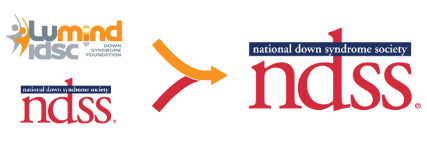Dear Friend of LuMind IDSC,
Recently, I spoke with a family whose newborn baby had heart surgery. As many of you who have been through similar experiences can attest to, that first year with their child was an intense time. While no one wants to see their child go through such a surgery—especially so early in their lives—I reminded myself just how fortunate we are to be able to get such interventions for our children.
In the ’70s and ’80s, the first newborn with DS had heart surgery to correct congenital heart defects, the kind that affect about half of children with Down syndrome. As a result of that medically pioneering family, the average life expectancy of individuals with Down syndrome doubled. Make no mistake: these medical solutions, delivered to us after years of scientific research, are ultimately a good thing—even if our hair thins a little (or a lot!) from the stress in the meantime.
Down syndrome research delivered results for our families then, and it continues to deliver for us today.
Over the last five years, the Down syndrome community has seen numerous advancements addressing multiple challenges. LuMind IDSC is proud to support and promote research initiatives that resulted in:
- a hypoglossal nerve stimulation device which effectively treats obstructive sleep apnea
- initial data showing skin conditions like alopecia areata can be reversed with JAK inhibitors
- a new treatment for Down syndrome regression disorder using intravenous immune globulin (IVIG) that was successful in its initial pilot experiment
- an interesting new approach for cognition: a pilot study in adults with DS with gonadotropin-releasing hormone (GNRH) replacement therapy that showed early, but promising, initial results
Alzheimer’s disease research is another area that has seen a lot of progress with two new drugs approved by the FDA in the last 18 months—Aduhelm and Leqembi. However, not a single person with Down syndrome has yet received these promising FDA-approved treatments. LuMind IDSC is committed to getting the community included in clinical trials earlier than in the past, and to get everyone with Down syndrome access to the best treatments. Many of you have participated in the LIFE-DSR natural history study (and we can’t thank enough those of you who did!) and in other similar studies run in the US and Europe. We’ve also been very active in bringing pharmaceutical companies like Merck, AbbVie, and Alkermes into the dialogue through the LuMind IDSC Research Consortium.
As you can see, there is major momentum on Down syndrome research coming into 2023—and the key to continuing and accelerating this momentum will be that families like you support it by learning more about our initiatives and participating in research. As we expect new treatments for Alzheimer’s soon, it will be critical that adults with DS participate in those trials.
We understand, of course, that research participation is a big ask for many families. Changes to your routine can be difficult for your child with DS, and the logistics of travel and finding a place for research in your schedule can feel like insurmountable challenges. Across two LuMind IDSC caregiver surveys published over the last two years, only about 10% of respondents had participated in a clinical trial. As a community, it is important that we address the hurdles for research participation and that you, the families of people with DS, take the next step and participate when you can. You are the key to the continued momentum and further acceleration of having new treatments available for our loved ones!
With LuMind IDSC’s Down Syndrome Clinical Trials Network (DS-CTN), we want to assure you that we are committed to making the experience as easy as possible by putting you in the center of the experience so we can support you every step of the way. We also look forward to continuing the dialogue with you on how we can further remove barriers to your participation. We are enormously grateful to every family that participates in research—be it a survey, an observational study, or a clinical trial. And as you can see from the Down syndrome research momentum and the growing and promising avenue of new treatment options, your participation is already paying off!
Wishing you all a great start to 2023,
Hampus Hillerstrom
President & CEO
LuMind IDSC Foundation
